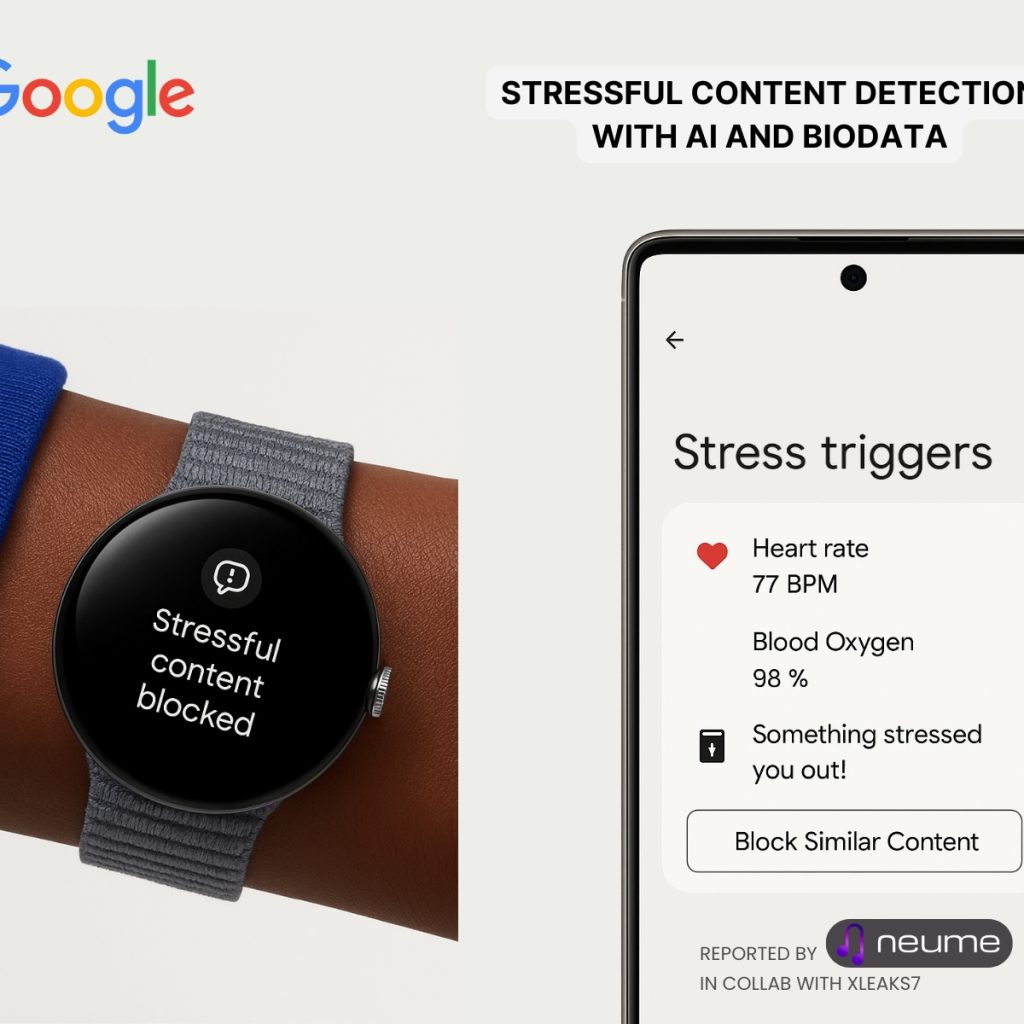Google is exploring the use of artificial intelligence to identify when digital content may be causing stress, according to a newly surfaced patent filing that links biometric data from wearables and smartphones with what users are watching or reading.
The filing, reported by Neume and @xleaks7, outlines a framework where devices such as smartwatches monitor physiological responses like heart rate or skin conductivity. AI then analyzes the material displayed on the screen — text, images or video — and labels it by tone and subject matter, such as political news or entertainment clips.
By combining health data with contextual analysis, the system is designed to detect patterns that indicate when certain types of content consistently raise stress levels. The AI adapts over time to individual users, creating a personal profile of likely triggers.
Users would be notified when stress-inducing content is detected and could choose to block similar items in the future. The patent also emphasizes that data would remain on the device, with users controlling which apps are monitored and confirming whether flagged moments were genuinely stressful.
While current smartphones and wearables track activity, sleep and screen time, they do not assess the emotional impact of specific digital experiences. The patent suggests Google is considering technology to fill that gap, though it remains unclear if or when such a system might be developed into a consumer product.
Source: Neume, Google Patent
